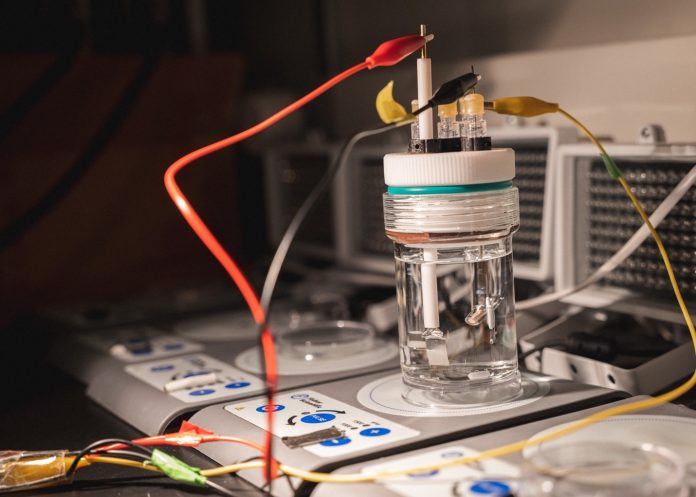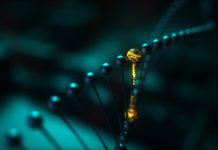Microbial electrosynthesis (MES) describes the approach to convert CO2 to various carbon compounds via the electrochemical interactions of electrographic biocatalysts and an electrode. Here, we discuss the role of synthetic biology in MES
Through extracellular electron uptake (EEU) from electrodes, these biocatalysts convert CO2 to products such as renewable biofuels and bioplastics in a carbon-negative process. Biofuel and bioplastic synthesis via MES requires minimal inputs, anchoring its standing as a highly sustainable potential mode of production. The identification of biocatalyst electron uptake mechanisms and the engineering of biocatalysts comprise an important part of the synthetic biology approach to MES, as well as the mechanics of scalability and increasing product formation.
Previous work in the Bose Laboratory has, in the model photoferrotroph R. palustris TIE-1 (TIE-1), both classified factors involved in electron uptake (1) and engineered deletion mutants exhibiting increased product formation (2). For example, TIE-1 deletion mutants lacking nitrogen-fixing pathways led to increased production (compared to wild type) of n-butanol, a renewable biofuel (2). Removing the electron-consuming nitrogen-fixation redirects electrons to the target n-butanol biosynthesis pathway, resulting in increased n-butanol production during MES. Work with these deletion mutants suggests that the creation of alternate mutants that free electrons for biofuel and bioplastic-producing processes could prove fruitful in increasing EEU efficiency and product formation.
The feasibility of renewable energy production on a laboratory scale
While the Bose Laboratory’s work has demonstrated the feasibility of renewable energy production at a laboratory scale, there are yet bottlenecks regarding MES at scale. In particular, low production efficiency presents the largest obstacle to the industrial-scale manufacturing of biofuels and bioplastics via MES. Although deletion of the nitrogen-fixation pathway improved biofuel output, TIE-1’s current photoautotrophic production capabilities are still greatly limited by low rates of EEU. Low yield generates higher costs of production, which present a substantial financial barrier to scalability. Therefore, further advances in synthetic biology and metabolic engineering are necessary to ensure the environmental benefits of MES can be realized on a larger scale.
There are several other promising research avenues for increasing production efficiency aside from deleting electron-consuming pathways. For example, over-expressing biosynthesis pathways for enzymes involved in carbon fixation may facilitate increased carbon conversion and, thus, higher n-butanol and bioplastic output. In addition, engineered microbial strains with a greater tolerance for varied environmental conditions could leverage temperature, salinity, pH, and pressure to improve MES efficiency. Increased temperatures have been shown to amplify yield by enhancing electron transfer and CO2 solubility in bacterial growth media (3). The economic feasibility of factory-scale bio-commodity production using MES depends on progress in such areas. On a broader scale, the carbon-negative production of biofuels and bioplastics has the potential to mitigate the harmful health and environmental effects of the extensive historical reliance on fossil fuels. Pursuits in synthetic biology aim to make these attainable goals for the future.
References:
- Gupta, D. et al. Photoferrotrophs Produce a PioAB Electron Conduit for Extracellular Electron Uptake. mBio 10, (2019).
- Bai, W., Ranaivoarisoa, T. O., Singh, R., Rengasamy, K. & Bose, A. n-Butanol production by Rhodopseudomonas palustris TIE-1. Commun Biol 4, 1257 (2021).
- Ren, H., Jiang, C. & Chae, J. Effect of temperature on a miniaturized microbial fuel cell (MFC). Micro and Nano Systems Letters 5, 13 (2017).
This piece was written and provided by Prem Prabhakar, Anjali Rajkumar, Arpita Bose
More About Stakeholder
-
Exploring microbial electrosynthesis at Washington University in St. Louis
Dr Arpita Bose discusses research into bioelectrochemical systems and microbial electrosynthesis at the Department of Biology, Washington University.










